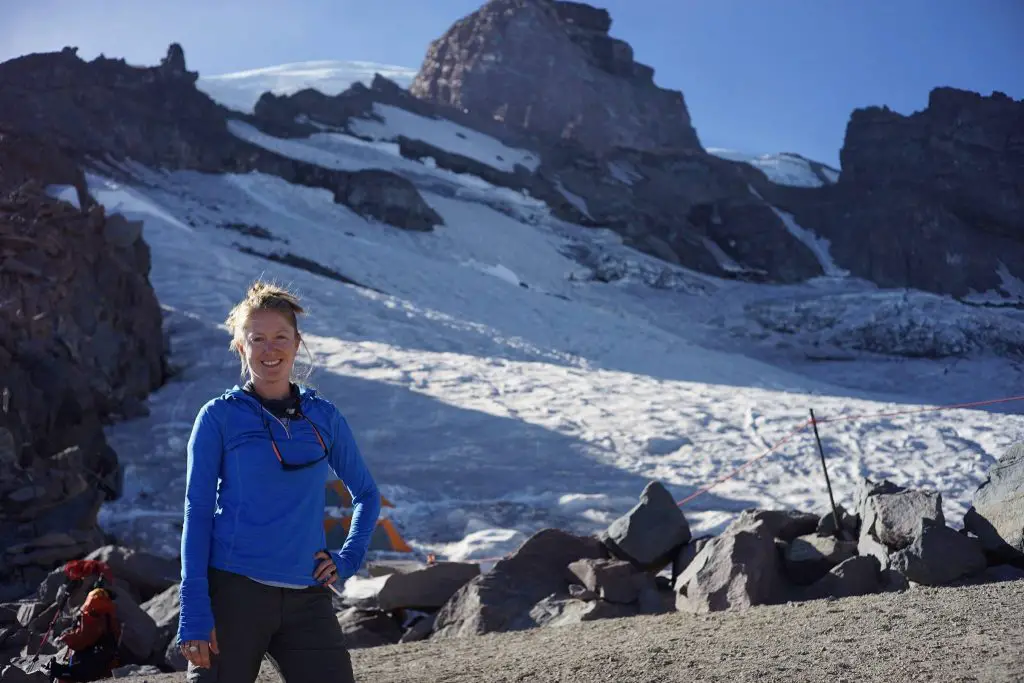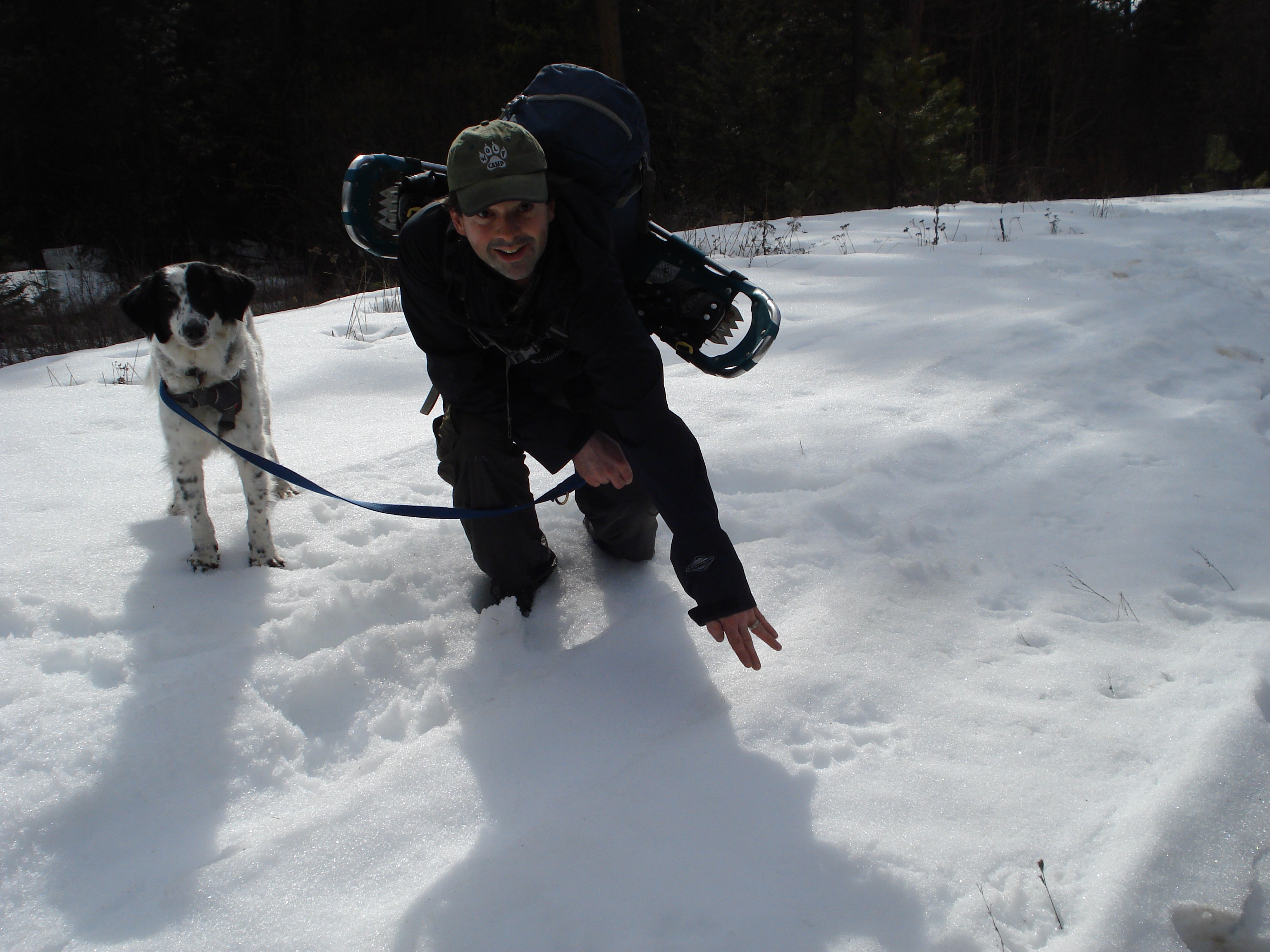In today’s modern world of skyscrapers, electronics and the internet, it’s easy to become disconnected from nature and all it has to offer. Many people, especially those living in big cities, often have limited access to the great outdoors. Getting out of the city and trekking all the way into the wilderness can take a lot of effort and certain skills, such as outdoor cooking, tent-pitching, wilderness first aid and properly packing a backpack, are not things everyone has the time or resources to teach themselves.
That’s where the Wolf College comes in. Based out of Puyallup in Washington State, the Wolf Camp and Conservatory College was founded twenty years ago by Chris Chisholm, who currently co-owns the organization with his wife, Kim Chisholm. The purpose of their organization is to teach people important survival and earth skills, and to re-forge the lost connection between humans and nature by taking students out into the wilderness on incredible, educational adventures.
There are many different camps offered at Chisholm’s Wolf College, including, but not limited, to bird-call identification and analysis, wilderness scouting and survival, animal tracking, wilderness first aid, wilderness cooking and botany. With a very well-educated and qualified faculty specializing in a variety of important skills, the so-called Wolf Camps are perfect for anyone who loves wilderness survival or who is interested in learning a broad range of earth skills.
Although most of the week-long wilderness camps are geared toward teenagers, young adults and adults, the Wolf College offers camps and programs for kids, as well. Day camps, as well as overnight camps, are available for kids and their families and allow children to step out into nature and learn some valuable life skills from trained experts.

The Wolf College offers camps year round, but the summer programs are by far the most epic and fantastic. As a kid and then as a teenager, I attended many of the one-day training sessions, as well as several week-long survival and wilderness skills camps. The first camp that I went to only happens once every other year, when the two chief instructors, Chris and Kim, lead a small group of teenagers out into the wilderness of Eastern Washington on an incredible week-long hike.
One of the most important things I learned on my first week-long Wolf Camp is that, when hiking in the wild with no contact or access to civilization, it’s vital to stick with your group and listen to the advice of the more experienced hikers. Whenever we encountered trouble or got into a sticky situation, Chris and Kim always knew exactly how to assess the situation and get the group back on track. From finding clean water sources to locating and analyzing the best places to set up camp each night, I learned so much about how to survive and thrive out in nature from the knowledgeable and level-headed survivalists leading the expedition.
The second and third week-long camps that I attended at Wolf College were back-to-back scout camps. The first was an introductory scouting and survival skills camp meant to get new campers up to speed on the basics of scouting, while the second was a more intense and demanding Secrets of the Ancient Scout camp. Unlike the backpacking camp, the scout camps were based in a single place, meaning that campers weren’t expected to hike long distances as part of the program.
At the introductory scout camp, I learned a wide variety of skills that I’d never explored or thought necessary prior to my experience at the Wolf College, from crafting shelters out of natural materials to starting a fire using two sticks and my bare hands. I also learned how to connect with nature by identifying the calls of various birds native to Washington State, including the all-important “alarm calls.” Most birds have special calls that they do when they believe something dangerous is approaching their territory; if a person learns to recognize those special calls, they can identify potential threats in the wild long before they become an issue.
At the advanced scout camp, campers moved up from learning the basics of scouting to completing much more strenuous and involved activities and tasks. The most intense challenge I completed during my week at Ancient Scouts Camp was the nighttime game of capture the flag, which pitted newly trained scouts against camp leaders in a competition to steal a scrap of cloth from inside the camp leaders’ campfire circle. Because the camp leaders were up on a bare, grassy hill and had a very large fire burning, scouts had to rely on stealth, natural camouflage, positioning and teamwork to avoid being seen and “captured” by their instructors before they could snatch the flag and sneak back into the woods again.
At one point during the midnight game of capture the flag, my two younger sisters and I were lying hidden beside the camper trailer of the two main instructors, waiting for the conversation around the campfire to pick up so that we could use the “sound cover” to move in and seize the flag. Just as we were about to start moving again, one of the camp instructors stepped out of the camper right in front of us with a flashlight. He paused, sweeping the flashlight over the ground until its beam landed directly on top of the place where my sisters lay concealed.
At first, I thought we were done for. There was no way he hadn’t seen us. But then, he turned and walked away, back toward the campfire where the other camp leaders were assembled. That was the first time I really appreciated just how useful scout training could be. We had been lying on mowed grass, in plain sight, but due to the hours of camouflaging and stealth work we’d done to prepare for our mission, my sisters and I were invisible even to the trained eyes of a Wolf Camp scout leader.
Although the week-long camps and day-long courses offered by the Chisholm’s at the Wolf College are an awesome chance to reconnect with nature and learn vital survival and scouting skills, these experiences can be incredibly intense. If you’re going to participate in any of the more advanced courses, make sure to come prepared and ready for anything, and to thoroughly read through the course descriptions before signing up. At one point, the scouts in the advanced week-long camp I participated in were asked to completely cover their clothes, hair, hands and faces in mud, charcoal, dirt and forest debris and then lie motionless in the forest, just observing their surroundings, for an hour as part of a camouflaging activity.
Learning to live with and in nature can be demanding and will certainly test your patience, but the experiences you’ll have at Washington’s Wolf College are guaranteed to be exciting, inspiring and unlike anything the city and civilization can offer. And the skills you’ll gain are useful even if you don’t plan on returning to the wilderness anytime soon; first aid, food preparation, stealth, risk management and assessment and teamwork skills are great to know no matter where you are.

















